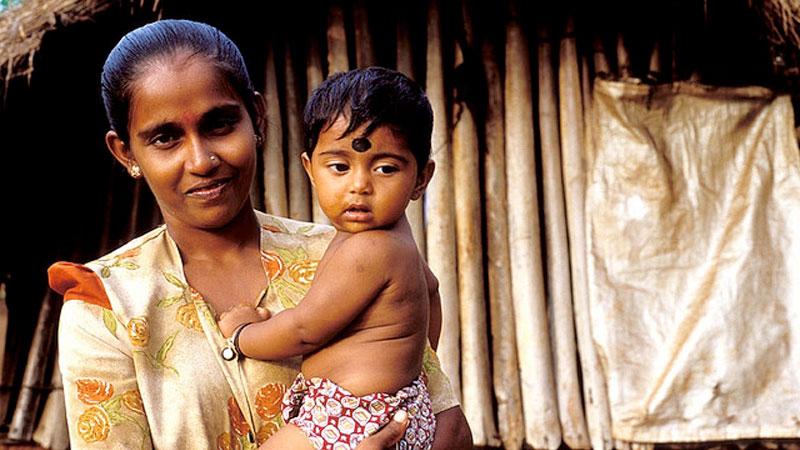
In formulating Policies and guidelines on reparations, the Reparations Act requires that the Office be “guided by the principles of non-discrimination, victim-centrality and fairness…” And yet, while emphasising the need for equity and impartiality the Act also states that the Office owes due consideration to “the special needs of women…” (Article 12 (1) (c)).
 What are these special needs and why is a special mention of this important?
What are these special needs and why is a special mention of this important?
Answers to these were provided by the victims themselves who spoke of their grievances[1] regarding previously failed reparations processes and why it was important to have a more gender sensitive mechanism this time around.
While equity and fairness are vital concepts, many groups stressed the need for targeted assistance when granting reparations[2]. This is important given the vulnerable situations of certain victims. Many of them said that Reparation Policies must recognise and highlight those groups (such as women, children, and differently-abled victims) due to the specific ways in which wrongs are experienced. Women in this case were identified as vulnerable due to the way they experience wrongs in a patriarchal context[3].
Sexual violence
 Sexual violence is a primary aspect to consider in this regard. Women in conflict face the double burden of suffering damage and loss or war and violence, and in addition also bear the pain of sexual abuse and rape. Their suffering does not end here. Having faced such physical violations, the patriarchal nature of their environment has forced many victims into continued psychological trauma.This arises from the social stigma of being a victim of sexual violence[4]. It is a taboo topic, and many victims admitted that they were too afraid to seek help due to the fear of being rejected by society and mocked by authorities. Victims of sexual abuse who need care and support are shunned in society, while their silence allows perpetrators to roam free.
Sexual violence is a primary aspect to consider in this regard. Women in conflict face the double burden of suffering damage and loss or war and violence, and in addition also bear the pain of sexual abuse and rape. Their suffering does not end here. Having faced such physical violations, the patriarchal nature of their environment has forced many victims into continued psychological trauma.This arises from the social stigma of being a victim of sexual violence[4]. It is a taboo topic, and many victims admitted that they were too afraid to seek help due to the fear of being rejected by society and mocked by authorities. Victims of sexual abuse who need care and support are shunned in society, while their silence allows perpetrators to roam free.
Special focus needs to be given to women to end this toxic stigmatisation. Confidentiality is one of the key principles of the Office for Reparations and is necessary to protect the identity of those affected by sexual violence. It is important that victims feel safe to ask for assistance.
The Act states that when making policies, the Office should have due regard to all relevant factors counting “the impact, including continuing physical, psychological and economic impact” on the aggrieved persons (Article 12 (d) (ii)). Many forget the economic impact that women face due to sexual violence. It affects women’s earnings as social stigma can hinder their access to work opportunities and their marriage potential[5]. The inability to get a job or be supported by a husband who earns a sufficient income, leaves women in a more vulnerable position.
Apart from sexual violence, there are many other factors to consider when granting reparations to women.
“Women who faced the brunt of the war are also those who are forced to provide for their families, playing multiple roles. Reparations should not consider only men as primary income earners.
It should consider women as equal income earners and give them equal access and opportunity to establish sustainable livelihoods or paid work.” (Final Report of the CTF, 88)
Female-headed households
In the case of female headed households where women are playing multiple roles such as this, reparations are vital. Through reparations women can be given monetary support to build a home or start a small-scale business. Education can be granted to their children, and health facilities that are otherwise inaccessible can be granted to families to ease their burden. Special consideration can be given to women raising children of dead relatives in addition to their own and who cannot earn a large enough income to support all.
Reparations policies must consider that women given lump-sum payments are likely to be pressured to give up the money to relatives or pay off family debts[6]. Without consideration of special needs such as this, women and families may not gain the best of the benefits they receive.
Such special consideration towards women’s needs will make the reparations mechanism only more effective.
Special needs for women does not mean to give priority treatment to women.
It is only one step towards addressing our toxic history of continued marginalisation and violation against women.
[1]Through consultations conducted by the Consultation Task Force on Reconciliation Mechanisms (CTF) in 2016
[2] (Final Report of the CTF, 59)
[3](Final Report of the CTF, 56)
[4](Final Report of the CTF, 60)
[5] (Final Report of the CTF, 66)
[6](Final Report of the CTF, 89)
